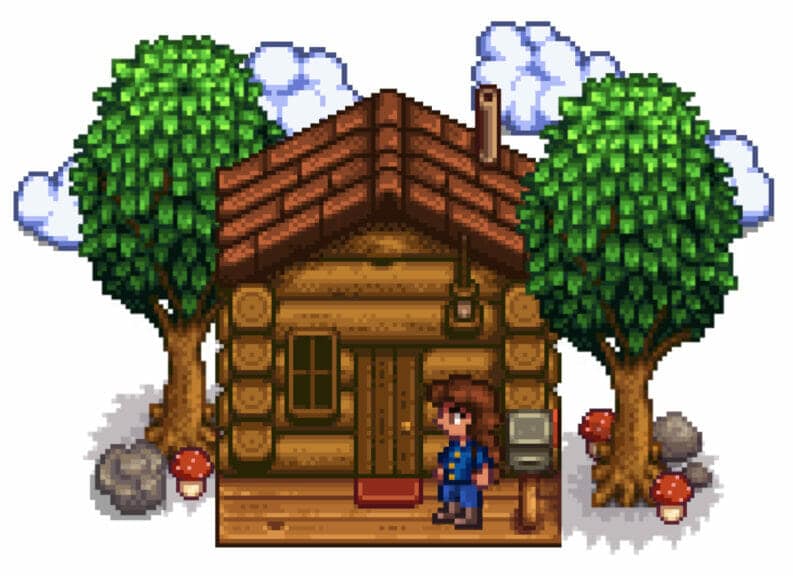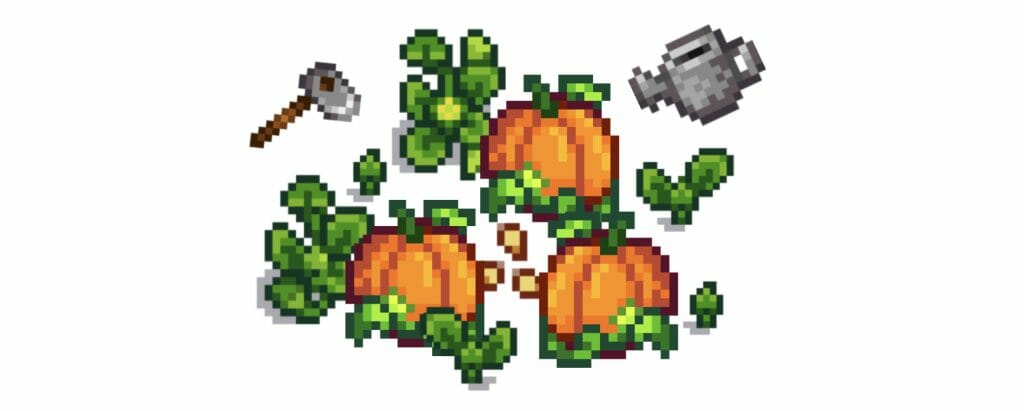From FarmVille, to Harvest Moon, to Animal Crossing, to Stardew Valley: farming video games have amassed their own empires, with millions of players online daily.
These games are idyllic, slow-paced simulations of agricultural life. Players tend crops, catch fish, and build cozy countryside homes. But what drives the enormous popularity of these farming games and makes them such a staple of gaming culture? And further: do farming games have the power to change our real lives for the better?
A “World In A Box”

Different games offer different player experiences, but one thing they all share is that they mimic and simplify real life. No video game can possess the full complexity of reality–but that’s part of the appeal. Kurt Squire, a professor of informatics and game design at the University of California, puts this idea well:
Games provide high graphic, dynamic “worlds in a box”, but these worlds are not representations of reality; they are stripped-down worlds, with limited opportunities for interaction.
From Content to Context: Videogames as Designed Experience by Kurt Squire
A “stripped-down world” has a lot of appeals: a world where relationships are boiled down to the number of ‘hearts’ you have with a virtual character, where your personal finances consist of simplified transactions and decisions (“Should I sell all my pumpkins today?”), where daily routines are simple and productive. There are no floods, fires, droughts, or unexplained diseases. Seasons are regular and consistent. There’s no death and little combat. Its nature was domesticated into pixels.

Of course, these idyllic worlds are not accurate representations of reality (especially the reality of being a farmer, which can be as bleak as in The Grapes of Wrath), but the games don’t provide a total escape from reality either. Rather, these games tap into some of the most prominent anxieties in modern life. They offer the simulated experience of things we lack: a sense of calm, a sense of order, a connection to nature, a slower pace of living, uncomplicated human relationships, and a healthy ecological climate. We can all feel the desire to live in that peaceful, uncomplicated, “stripped-down” world.
Reconnecting With Nature: Digital To Real Life

If farming games offer a source of escapism, it’s no surprise that there was a dramatic spike in the popularity of Animal Crossing during the COVID-19 lockdown. Players used the game to socialize virtually with others, but perhaps it was also to feel somehow connected to natural processes whilst staying indoors. The escapism of being a villager on a little island and “living off the land” was powerful and comforting. In an essay on the ideological impact of video games, Professor Kurt Squire wrote that games can “communicate powerful ideas and open new identity trajectories for learners.” Looking at these gaming communities, it’s clear that agriculture-based games can have profound ideological impacts. The desire to escape nature does translate from games into real life.
You have only to look into the Stardew Valley subreddit to see that the players’ desire to connect with nature reaches beyond the game’s world. Everywhere, there are players posting real-life pictures that mimic experiences in these farming games: players participating in farmers’ produce fairs, players buying real pumpkin seeds to plant, players showing off vegetables they grew themselves and even making handmade terrariums. It’s a weird kind of inspiration in reverse: a digital simulation encouraging reconnection with real-life natural processes.
Harvesting Potential

So, will these farming games make you immediately want to dash outside and plant parsnips, chop a tree, tend a chicken coop, or go fishing? Maybe, or maybe not. Either way, the most important impact of these games is the yearning they bring out in players. It’s the yearning for a world where life is inextricably bound to nature, where there’s order instead of chaos, and where society celebrates and cares for its natural resources. These are profound societal goals, and these games reflect peoples’ need for them. There’s no denying it: these digital worlds have real-life power, and we’re only just beginning to tap into it.














